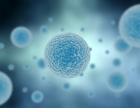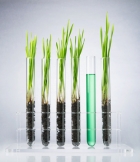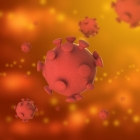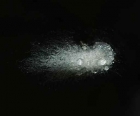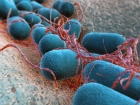Press monitoring
Scientists develop novel nano-vaccine for melanoma
5.8.2019 | Press monitoring
Researchers at Tel Aviv University have developed a novel nano-vaccine for melanoma, the most aggressive type of skin cancer. Their innovative approach has so far proven effective in preventing the development of melanoma in mouse models and in treating primary tumors and metastases that result from melanoma. The focus of the research is on a...
Researchers build artificial cells that sense and respond to their environment
2.8.2019 | Press monitoring
The artificial cells could be used to sense changes in the body and respond by releasing drug molecules, or to sense and remove harmful metals in the environment. However, in natural cells these chemical responses can be very complex, involving multiple steps. This makes them difficult to engineer, for example if researchers wanted to make...
To feed its 1.4 billion, China bets big on genome editing of crops
31.7.2019 | Press monitoring
Chinese leaders “want to strategically invest in genome editing, and [by that] I mean, catch up,” says Zhang Bei, who heads a team of 50 scientists at the Syngenta Beijing Innovation Center and works closely with a sister R&D facility in Durham. “And they also want to be the global leader as well in this area.” China may one day need...
Antibiotic-resistant genes found in Londons canals and ponds
29.7.2019 | Press monitoring
Central London's freshwater sources contain high levels of antibiotic resistant genes, with the River Thames having the highest amount, according to research by UCL. The Regent's Canal, Regent's Park Pond and the Serpentine all contained the genes but at lower levels than the Thames, which contained genes providing resistance for bacteria to...
Worm pheromones protect major crops
26.7.2019 | Press monitoring
Protecting crops from pests and pathogens without using toxic pesticides has been a longtime goal of farmers. Researchers at Boyce Thompson Institute have found that compounds from an unlikely source – microscopic soil roundworms – could achieve this aim. These compounds helped protect major crops from various pathogens, and thus have potential...
Bacteria-killing gel heals itself while healing you
24.7.2019 | Press monitoring
McMaster researchers have developed a novel new gel made entirely from bacteria-killing viruses. The anti-bacterial gel, which can be targeted to attack specific forms of bacteria, holds promise for numerous beneficial applications in medicine and environmental protection. Among many possibilities, it could be used as an antibacterial coating...
Cuttlefish ink found promising for cancer treatment
22.7.2019 | Press monitoring
Researchers have found that cuttlefish ink – a black suspension sprayed by cuttlefish to deter predators – contains nanoparticles that strongly inhibit the growth of cancerous tumors in mice. The nanoparticles consist mostly of melanin by weight, along with amino acids, monosaccharides (simple sugars), metals, and other compounds. The researchers...
Australian plants extracting high-value metals from mining wastes
19.7.2019 | Press monitoring
Increasingly scarce metals are being recovered from mining waste by University of Queensland researchers, who are making the most of native plants' metal-absorbing nature. Phytomining involves harvesting metals from the living tissue of a group of plants known as hyperaccumulators, which retain metals in high concentrations after absorbing them...
Permanent tattoos could be used to monitor long-term conditions
17.7.2019 | Press monitoring
Many people get a tattoo as a means of making a statement. Thanks to new research into permanent tattoos that change color in response to certain biomarkers, that statement could one day be something along the lines of, "My pH levels are being monitored." The technology is being developed by a team from Germany's Technical University of Munich,...
Will your future computer be made using bacteria?
15.7.2019 | Press monitoring
In order to create new and more efficient computers, medical devices, and other advanced technologies, researchers are turning to nanomaterials: materials manipulated on the scale of atoms or molecules that exhibit unique properties. Graphene – a flake of carbon as thin as a single later of atoms – is a revolutionary nanomaterial due to its...

